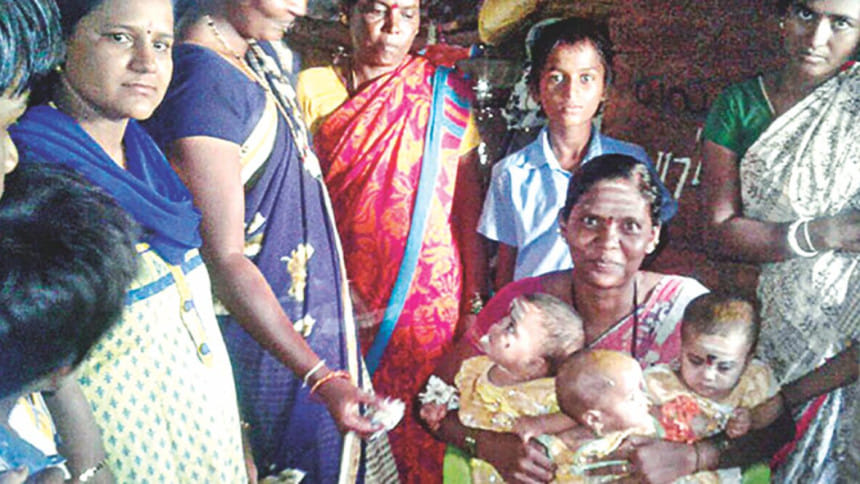"Kangaroo Mother Care" helps premature triplets thrive

Renuka Hadapad gave birth to triplets on 25 October 2016 in Koppal, India. Despite a seamless birth in the district hospital, the triplets were born each weighing less than 1500 grams – making it difficult for them to nurse, stay warm or gain weight.
World Health Organisation (WHO) recommends "Kangaroo Mother Care" or continuous skin-to-skin contact between mothers and low-birth weight or premature babies, and exclusive breastfeeding, as soon as they are born. At first, Renuka lacked motivation to bond with the tiny triplets; but hospital staff, who are part of a WHO research programme working to scale-up Kangaroo Mother Care in India, persuaded her to work at it. After 28 days in the hospital, the babies were discharged. On 7 March 2017, the triplets crossed the 2500 gram mark.
"Success in scaling up Kangaroo Mother Care in Ethiopia and India means that we can apply the lessons worldwide," said Dr Rajiv Bahl, coordinator for research and development, WHO Department of Maternal, Newborn, Child and Adolescent Health.

 For all latest news, follow The Daily Star's Google News channel.
For all latest news, follow The Daily Star's Google News channel. 



Comments